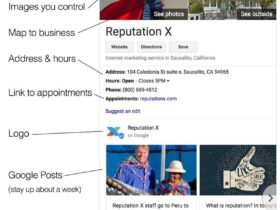WHAT IF YOU DISCOVER DEFAMATORY STATEMENTS TOO LATE?
OVERVIEW
The recent unreported Queensland Court of Appeal decision of Surie v MacDonald has become the first superior Australian Court to consider the interplay of recent amendments made to the Defamation Act 2005 (Qld) (Defamation Act) and the Limitation of Actions Act 1974 (Qld) (LA Act), in an important decision also relevant to defamation matters across New South Wales, Victoria, South Australia and the ACT, with their adoption of the “concerns notice” requirement as well.
RECENT LEGISLATION
Commencing on 1 July 2021, several amendments were introduced into the Defamation Act including the insertion of a new section 12B, requiring an aggrieved person to issue a concerns notice before commencing an action in defamation.
Complimentary amendments were also introduced into the Limitation of Actions Act 1974 (Qld) (LA Act) with section 32A expanding the factors a Court must have regard to in determining whether to extend the limitation period for filing a defamation action from 1 year running from the date of the defamatory publication, to a period of up to 3 years from publication.
Until the final weeks of 2024, only a handful of cases had considered these new provisions, and never together.
The Queensland Court of Appeal decision of Surie v MacDonald provides the first superior Court precedent on the interplay between s.12B of the Defamation Act and s.32A of the LA Act.
DISTRICT COURT CASE SUMMARY
Following the Respondent’s issue of a concerns notice to the Applicants, the Respondent commenced proceedings in the Queensland District Court in relation to alleged defamatory imputations published by the Applicants in a “letter” to the Department of Education. The Applicants refused to disclose the defamatory material. It was later discovered through non-party disclosure that the imputations were published in an email, not a letter, in almost identical terms to the pleaded letter, as well as containing several new defamatory imputations and recipients of which the Respondent had not previously been aware.
The Respondent filed an amended statement of claim (ASOC) now referring to an “email” and including the new defamatory imputations.
The 1 year limitation period had accrued by the time the Respondent’s ASOC was served, with an application for leave brought to extend the limitation period. For the purposes of the application, the Respondent accepted that each new defamatory imputation constituted a separate cause of action. The primary Judge extended the limitation period under s.32A of the LA Act.
The Applicants sought leave to appeal his findings and orders, including a contention that s.12B of the Defamation Act operated as a bar to pleading the new causes of action in the ASOC without a new concerns notice having been issued. They contended the primary Judge was in error extending the limitation period under s.32A of the LA Act as the Respondent had not issued a new concerns notice, so any extension was futile.
COURT OF APPEAL DECISION
In refusing the Applicants’ application for leave to appeal and dismissing their application with costs to the Respondent, the Court of Appeal’s Justice Brown, with whom Mullins P and Crowley J agreed, concluded the primary Judge made no errors, finding:
- the Applicants’ basis for refusing to disclose the email was overly technical, the email was directly relevant to the matters in issue, and it should have been disclosed;
- the Applicants’ failure to disclose the email did not accord with their overarching obligations under rule 5 of the Uniform Civil Procedure Rules 1999 (Qld);
- the non-disclosure of the email was relevant to explaining the Respondent’s delay in amending the ASOC to add additional causes of action by reference to that email;
- it was just and reasonable to allow the extension of time pursuant to s.32A of the LA Act, with the primary Judge turning his mind to all relevant considerations when looking to the question of delay;
- 12B of the LA Act requiring the issue of a concerns notice applies only before proceedings have been issued, and not to amendments of those proceedings; and
- 12B of the LA Act does not operate as a statutory bar to the additional causes of action added outside of the limitation period, absent a fresh concerns notice.
Surie v MacDonald is an excellent reminder to diarise 1 year from the date the defamatory publication was made, in case leave is required for amendments after that period has accrued. The case provides certainty that a fresh concerns notice is not required for those amendments, either within time or after the 1 year has expired. It is also current law (although an area open to be further explored by the Courts) that each defamatory imputation is considered a separate cause of action.
Contact Us
If you think you have been defamed, or accused of defaming someone, please contact us at Rostron Carlyle Rojas Lawyers. We would be delighted to speak with you. The recent introduction of a concerns notice and the new “serious harm” threshold required before commencing proceedings, have changed the landscape on what is a viable defamation case to bring. We have a team of experts who can guide you through this, to determine whether you have a valid claim or defence.













